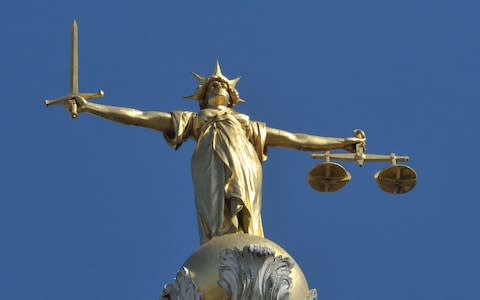Police do not need to fully check photographs and social media accounts in rape cases, head of CPS suggests

Photographs and social media accounts do not necessarily need to be fully checked in rape cases, the head of the Crown Prosecution Service has suggested.
Alison Saunders, the Director of Public Prosecutions, insisted she does not believe anyone is in jail after being wrongly convicted because of failures to disclose crucial evidence.
Ms Saunders’ insistence that the justice system is working comes after Scotland Yard launched an urgent review of approximately 30 sex cases due to go to trial after the collapse of two rape prosecutions in a week in December.
The trial of Liam Allan, 22, was halted at Croydon Crown Court in December while days later another prosecution collapsed against Isaac Itiary, who was facing trial at Inner London Crown Court accused of raping a child.
Both cases involved the same investigating officer, and the detective remains on full duty in the sexual offences investigation unit, the Metropolitan Police said.
Meanwhile, a third rape trial collapsed after a failure from investigators to find key evidence on Monday.
The case against Samson Makele was halted at Snaresbrook Crown Court on Monday after his defence team unearthed key images from his mobile phone which had not previously been made available, law firm Hodge Jones and Allen said.
The 28-year-old was accused of raping a woman he met after the Notting Hill Carnival in 2016 but the case, due to go to trial at the end of the month, was thrown out after more than a dozen pictures emerged of the pair apparently cuddling in bed.

Mr Makele, originally from Eritrea, claimed the sex was consensual but investigators from the Metropolitan Police did not find the images, which were discovered when the defence hired an independent forensic expert.
Ms Saunders rejected suggestions that it should have been obvious to check for photographs.
She told BBC Radio 4’s Today programme: “Well it is not because if you have a case where people have briefly known each other there is nothing that says there will be photographs. What the police obligation is is to pursue all reasonable lines of enquiry.
“That doesn’t mean going into every single avenue of your life. They would look to see if there was contact as in text messages which they did and which we looked at and we served.
“But they did not know what else was on the phone.”
Ms Saunders said as a result the “prosecutors had no idea that there were photographs there”.
She rejected the accusation that failure to check for photographs was a glaring omission as she suggested trawling a person’s social media and pictures was not always necessary.
She said: “We don’t look into every single aspect of everybody’s life. There has got to be a proportionate response.
“This is where there is a complete systemic issue because it is about everybody doing their job so everybody looking, so the police doing all reasonable lines of enquiry, making sure that they are looking because their obligation is to look at things that both exonerate and also that provide us with evidence that is going to convict somebody.

“We are there to look and see whether it should be disclosed, whether it undermines our case or assists which means we have got to have it from the police in the first place and then it is for the defence, and this is part of our system, to raise issues which are their defence which say, for example in that case the suspect must have known he had taken photographs.
“That could have been raised very early. When it was raised, which was properly raised at the time and we looked at it, we discontinued the case straightaway.”
Ms Saunders said ultimately the justice system worked in the case of Mr Makele but that the photographs issue should have come up “much earlier”.
Ms Saunders is meeting senior police officers and barristers on Thursday to discuss concerns that vital material is not being disclosed.

 Yahoo News
Yahoo News 
